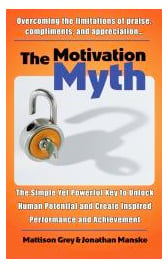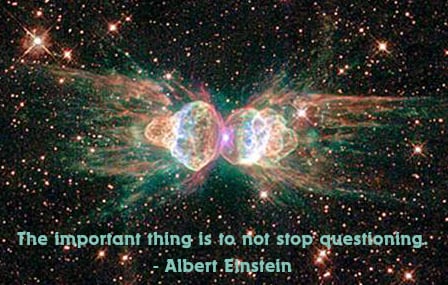Coaching Questions Don't Always End With Question Marks

 Today, in the International Association of Coaching's (IAC) Voice newletter/blog, an article by Business Coach, Mattison Grey, MCC, appeared with the title, When the Best Coaching Tool Isn't a Question.
Today, in the International Association of Coaching's (IAC) Voice newletter/blog, an article by Business Coach, Mattison Grey, MCC, appeared with the title, When the Best Coaching Tool Isn't a Question.
In her article, Mattison makes a powerful case for acknowledgment as a masterful coaching tool. She should know. Mattison wrote the book on acknowledgment called, The Motivation Myth. And she points out that most coaches don't know what it is or confuse it with something else.
Mattison has studied the art of acknowledgment more than anyone I know, probably more than any coach alive, so I always defer to her on this subject. She started educating me on acknowledgment six or seven years ago and I've watched her use it in action many times. It truly is amazing.
Unfortunately, if you haven't watched a master acknowledger practice her art, or if you didn't know what you were witnessing, you probably missed the implications. So let me point out a few.
Here's Mattison's definition of acknowledgment:
Acknowledgment is saying what a person did, or results they achieved, delivered with a tone of appreciation, curiosity or surprise, and without judgment.
Easy, right? Try it. For most coaches, it's anything but easy. That's because we're still getting in the client's way (In other words, we're NOT making it all about them, so we're failing the first step in master coaching).
If you acknowledge well, here are some of the things that may happen:
- Your client lights up
- They feel seen/heard
- They don't feel suspicious (as in, 'What's she buttering me up for?')
- They acknowledge themselves ('I did!')
- They open up to us
- They see themselves in a new light
- They tell us things we didn't even know to ask about
- They think more resourcefully
- They step into their Personal Greatness
- They are willing to do far more
- They love themselves (and us)
When I teach acknowledgment to Master Coach Training students, I offer a few pointers, such as, use second-person pronouns (you, your, yours) instead of first-person pronouns (I, me, mine); acknowledge what the client did, the results they got and who they are becoming.
When used well, acknowledgment can express or enhance virtually any other coaching skill, including all of the IAC Coaching Masteries(tm). The right acknowledgment, well-placed and followed by a bit of silence, can even be a powerful clarifier.
Which is one reason why master coaches don't always ask questions.
Get your copy of Mattison's book, The Motivation Myth (at left) and become a master of acknowledgment.*
*I'm an affiliate of Mattison's and I would recommend this book, anyway.



